PEOPLE

MB ChB (UK), MRCP (Medicine UK), FRCR (Radiology UK), FHKCR (Radiology HK), FHKAM (HK), MD (CUHK)
Clinical Professor
GENERAL
Expertise
- Head and neck radiology, MRI, oncologic imaging
Research Interests
- MRI of the head and neck
- MRI of nasopharyngeal carcinoma (patterns of spread, staging, predictors of treatment response; treatment induced complications; early detection and screening)
- MRI of squamous cell carcinoma and lymphoma
- Functional MRI (DWI, MRS, DCE-MRI and CEST)
- MRI for tumour characterisation
- MRI for prediction of treatment response (pre-treatment & intra-treatment)
- MRI of the post-treatment neck
TEACHING PROFILE
Undergraduate MB ChB
Professor Ann king has been a dedicated teacher in the undergraduate medical curriculum at CUHK for nearly 30 years, receiving consistently high teaching scores from her students and being a member of many faculty teaching committees. Since 2002 she has been in charge of developing and coordinating the radiology teaching program, an integrated course that spans the curriculum in three main blocks: (1) Radiology anatomy (Preclinical years), (2) Radiology pathology of emergency and common diseases (First clinical year), (3) Basic clinical radiology (Final Clinical year). Each block contains five modules comprising, Thorax, Abdomen & Pelvis, Musculoskeletal system, Neuroimaging & Head /Neck, and imaging modalities. Knowledge and skills in each module are built up over the course of the curriculum using a wide range of teaching methods that include e-learning, flipped classrooms teaching, interactive lectures with in-class on-line quiz and small group tutorials, modality rotations and end of block examinations. Faculty education award for collaborative teams 2024.
FRCR and FHKCR
Professor Ann King was head of radiology resident training for 18 years and program director of the new territories east cluster training. Over this period radiology training underwent considerable changes with the implementation of a structured program and log books by the Hong Kong College of Radiologists.
SERVICE PROFILE
Professor Ann King was recruited in 1995 to help set up the new MRI service and subsequently set up the head & neck MRI service. She currently provides regular weekly clinical service sessions for the public and private patients at the Prince of Wales Hospital. Her main expertise remains in MRI where she provides frontline imaging service sessions covering MRI of the head & neck and neuroimaging, but also provides services in ultrasound of the head & neck, CT of the head & neck and CT in general oncology, plus additional input into clinico-radiological conferences, PET/CT and ad hoc consultations. She works closely with her head and neck colleagues in oncology, radiotherapy and surgery, and provides support for the local and international clinical trials in head and neck cancer. She also provides imaging support to the neurosurgeons and neurologists.
Professor King is an Honorary consultant in the Department of imaging and interventional radiology in the Prince of Wales hospital and Honorary Consultant in the New territories east cluster. She is a member of the departmental senior staff committee and over the years has taken up many departmental management roles.
Professor King has given over 17 years of service to the Hong Kong College of Radiologists where she has been a member of the education committee since 2003. Over this period the committee established the guidelines for radiology training in Hong Kong which cover hospital, trainer and trainee requirements. The latter include levels of direct supervision, workload for all imaging investigations, clinic-radiological conferences, audit, quality assurance, teaching and research. These guidelines were set up well before those in the sister College in the UK. Subsequently through this committee, training course subcommittee and accreditation subcommittee she has helped to develop and monitor the training and teaching courses in Hong Kong, and been a senior member on hospital re-accreditation assessments in 2007, 2012 and 2017. Professor King has also been an examiner for joint the Royal College of Radiologists UK and the Hong Kong College of Radiologists Final Examination for the Fellowship, and the Hong Kong College of Radiologists Exit Examination from 2005-2014.
Current service to international bodies
- Member of the Head and Neck Cancer International working Group (HNCIG) on consensus on definition and grading of radiologic extranodal extension (ENE) in head and neck cancer 2023
- Member of the AJCC expert panel on staging nasopharyngeal carcinoma (9th Edition) 2023
RESEARCH PROFILE
Professor Ann King is an academic radiologist specialising in head and neck radiology with nearly 30 years of experience in MRI research of head and neck tumours. She has published 235 journals (1/4 as first and 1/3 as corresponding, author). In 2024 her h index and total number of citations were 49 and 8116 (web of science), 53 and 9433 (Scopus) and 60 and 13744 (Goggle scholar).
Professor Ann King’s interest in academia began in 1988 at the Hammersmith Hospital/Royal postgraduate medical school followed by the Middlesex/ University College Hospital, London UK, before moving to the Chinese University of Hong Kong in 1995 with the opening of the new MRI service.
MRI of Nasopharyngeal Carcinoma
Professor King’s main research area is MRI of nasopharyngeal carcinoma, a cancer that is endemic in Hong Kong. She has published over 95 papers in the subject and her MD entitled “Magnetic resonance imaging of the head and neck in nasopharyngeal carcinoma” was awarded with commendation in 2008. She has been using MRI to routinely stage nasopharyngeal carcinoma for more than 20 years, and her earliest published works in this field were amongst the first to report the MRI patterns of primary tumour spread and nodal spread in this disease. Subsequent publications were amongst the first to compare MRI and PET/CT staging and to describe a wide range of treatment induced complications on MRI. Her work in staging continues today with the current emphasis on anatomical and functional MRI markers for distant metastases. Her other major direction of current research is the role of MRI in the early detection of nasopharyngeal carcinoma. Her work was the first to prospectively compare MRI and endoscopy for NPC detection and show that MRI has a very high sensitivity for early NPC detection including detection of endoscopically occult NPCs that make up 10% of all cases presenting clinically and 17- 33% of all cases detected in NPC population screening programs using EBV-DNA (Hong Kong) and EBV antibodies (southern China in collaboration with Sun Yat-Sen University Cancer Centre and Sihui Cancer Institute, Guangzhou, National Cancer Institute USA and VU Medical Center in the Netherlands). A five-grade system for MRI detection, designed primarily to improve discrimination between early-stage NPC and benign hyperplasia, has a very high accuracy and can detect NPC up to three years before endoscopy. The team is currently working on a fast non-contrast enhanced MRI protocol for screening programs with automatic detection using AI. Publications include NEJM, Annals Oncology, JNCI, Radiology and AJNR.
Functional/Molecular MRI of Head & Neck tumours
Professor King’s other main area of MRI research is functional/molecular MRI. She has been researching advanced MRI techniques in head and neck tumours, including early intra-treatment response in squamous cell carcinoma, since 2001. Early work focused MRS and DWI and were amongst the first pioneering group of publications in in-vivo cancer imaging, an area which today is the major field for cancer imaging. This was followed by head and neck cancer research into DCE MRI, CEST and currently TI rho imaging. She has worked closely with medical physicists and scientists to overcome the challenges of performing MRI in the head and neck and published over 40 papers in this topic, including technical papers and those related to tumour characterisation, prediction of treatment response (pre-treatment and early intra-treatment) and identification of residual cancer post-treatment.
MRI of the Post-treatment Neck
Post chemoradiotherapy assessment is one of the most challenging fields in head and neck imaging and forms a large part of the imaging service in head and neck oncology centers. Professor King has published widely on the post-treatment neck including functional imaging, refinement of anatomical criteria for detection of residual disease and treatment induced complications.
MRI of Head & Neck lymphoma, Lymph nodes and Thyroid Cancer
Professor King has published papers on a range of head and neck lymphomas, lymph nodes and thyroid cancer.
Professor King and her team have received awards for their work, she has received competitive grants related to NPC and functional imaging as the principal investigator, written book/book chapters, invited reviews and is a regular invited speaker at international conferences and workshops in MRI of the head and neck for 20 years.
OTHERS
Publications
- Ai QYH, King AD, Tsang YM, Yu Z, Mao K, Mo FKF, Wong LM, Leung HS, So TY, Hui EP, Ma BBY, Chen W. Predictive markers for head and neck cancer treatment response: T1rho imaging in nasopharyngeal carcinoma. Eur Radiol. 2024 Aug 27. doi: 10.1007/s00330-024-10948-5. Online ahead of print.
- Jian-Ji Pan, Hai-Qiang Mai, Wai Tong Ng, King AD, et al. Ninth Version of the AJCC and UICC Nasopharyngeal Cancer TNM Staging Classification. JAMA Oncology oi:10.1001/jamaoncol.2024.4354 Published online October 10, 2024.
- Henson C, Abou-Foul AK, Yu E, Glastonbury C, Huang SH, King AD, et al. Criteria for the diagnosis of extranodal extension detected on radiological imaging in head and neck cancer: Head and Neck Cancer International Group consensus recommendations. H. Lancet Oncol. 2024 Jul;25(7): e297-e307. doi: 10.1016/S1470-2045(24)00066-4.PMID: 38936388 Review.
- King AD, Qi AYH, Lam JWK, Tse IOL, So TYT, Wong LM, Tsang JYM, Leung HS, Zee BCY, Hui EP, Ma BBY, Vlantis AC, van Hasselt AC, Chan ATC. Early detection of nasopharyngeal carcinoma: performance of a short contrast-free screening MRI. Journal of the National Cancer Institute. 2024;116;665-672. doi.org/10.1093/jnci/djad260
- Ai QY, King AD, Yuan H, Vardhanabhuti V, Mo FKF, Hung KF, Hui EP, Kwong DLW, Lee VF, Ma BBY. Radiologic extranodal extension for nodal staging in nasopharyngeal carcinoma. Radiother Oncol 2024 Feb:191:110050. doi: 10.1016/j.radonc.2023.110050. Epub 2023 Dec 13.
- Lam WKJ, King AD, Miller JA, Liu Z, Yu KJ, Chua MLK, Ma BBY, Chen MY, et al. Recommendations for Epstein-Barr virus-based screening for nasopharyngeal cancer in high- and intermediate-risk regions. J Natl Cancer Inst. 2023 Apr 11;115(4):355-364. doi: 10.1093/jnci/djad012.
- Ai QYH, So TY, Hung KF, King AD. Normal size of benign upper neck nodes on MRI: parotid, submandibular, occipital, facial, retroauricular and level IIb nodal groups. Cancer Imaging. 2022 Dec 8;22(1):66. Doi: 10.1186/s40644-022-00504-z.
- King AD. MR Imaging of Nasopharyngeal Carcinoma. Magn Reson Imaging Clin N Am. 2022 Feb;30(1):19-33. Doi: 10.1016/j.mric.2021.06.015
- King AD, Woo JKS, Ai QY, Mo FKF, So TY, Lam WKJ, Tse IOL, Vlantis AC, Yip KWN, Hui EP, Ma BBY, Chiu RWK, Chan ATC, Lo YMD, Chan KCA. Early Detection of Cancer: Evaluation of MR Imaging Grading Systems in Patients with Suspected Nasopharyngeal Carcinoma. AJNR Am J Neuroradiol.2020 Mar;41(3):515-521. doi: 10.3174/ajnr. A6444. PMID: 32184223; PMCID: PMC7077896. AJNR Am J Neuroradiol. 2020 Mar;41(3):515-521. Doi: 3174/ajnr.
- King AD, Woo JKS, Ai QY, Chan JSM, Lam WKJ, Tse IOL, Bhatia KS, Zee BCY, Hui EP, Ma BBY, Chiu RWK, Van Hasselt AC, Chan ATC, Lo YMD, Chan KCA. Complementary roles of MRI and endoscopic examination in the early detection of nasopharyngeal carcinoma. Ann Oncol. 2019 Jun 1;30(6):977-982. Doi: 10.1093/annonc/mdz106.

